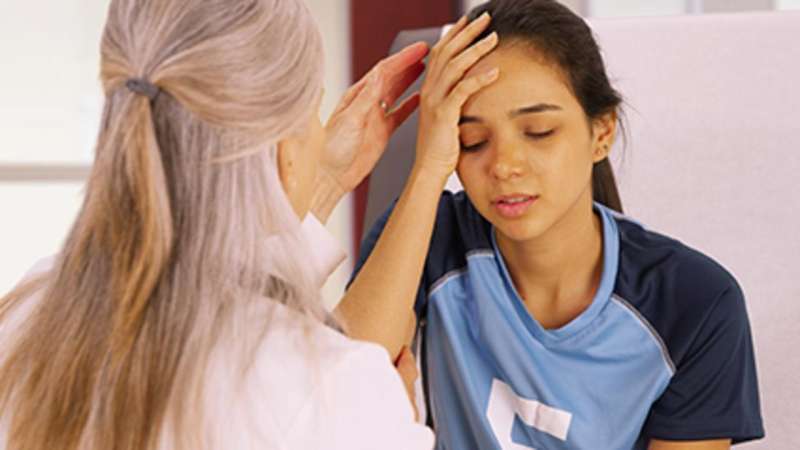This article has been reviewed according to Science X's editorial process and policies. Editors have highlighted the following attributes while ensuring the content's credibility:
fact-checked
peer-reviewed publication
reputable news agency
proofread
Recommendations developed for sport-related concussion in children

In a consensus statement issued by the International Consensus Conference on Concussion in Sport and published online Dec. 4 in Pediatrics, recommendations are presented for managing sport-related concussion among children and adolescents.
Gavin A. Davis, M.B.B.S., from the Murdoch Children's Research Institute in Melbourne, Australia, and colleagues developed recommendations regarding SRC in children and adolescents (age 5 to 12 and 13 to 18 years).
The authors note that lower SRC rates are seen with prevention strategies, including use of mouth guards, policies disallowing bodychecking in ice hockey, and neuromuscular training in rugby among adolescents. Robustness with the parent and child symptom scales was seen for the Sports Concussion Assessment Tools; the best diagnostic discrimination was seen within the first 72 hours after injury.
A multimodal tool incorporating symptom scales, balance measures, cognitive, oculomotor and vestibular, mental health, and sleep assessment is required for subacute evaluation (>72 hours); the Sport Concussion Office Assessment Tools (SCOAT6 [13+] and Child SCOAT6 [8 to 12]) were developed to this end. Early return to light physical activity and reduced screen time facilitate recovery rather than strict rest.
For adolescents with dizziness, neck pain, and/or headache for more than 10 days, cervicovestibular rehabilitation is recommended. For adolescents with persisting symptoms for more than 30 days, active rehabilitation and collaborative care may reduce symptoms. For diagnosing persisting symptoms after concussion, no tests and measures other than standardized and validated symptom rating scales are valid. For diagnosing or assessing recovery from SRC, fluid and imaging biomarkers currently have limited clinical utility.
"Future research evaluating concussion and head impact prevention strategies targeting sport-specific equipment, rule changes, training strategies, and management strategies is needed in children," the authors write.
Several authors disclosed ties to industry.
More information: Gavin A. Davis et al, Pediatric Sport-related Concussion: Recommendations From the Amsterdam Consensus Statement 2023, Pediatrics (2023). DOI: 10.1542/peds.2023-063489
Mark E. Halstead, What's New With Pediatric Sport Concussions?, Pediatrics (2023). DOI: 10.1542/peds.2023-063881
Copyright © 2023 HealthDay. All rights reserved.



















